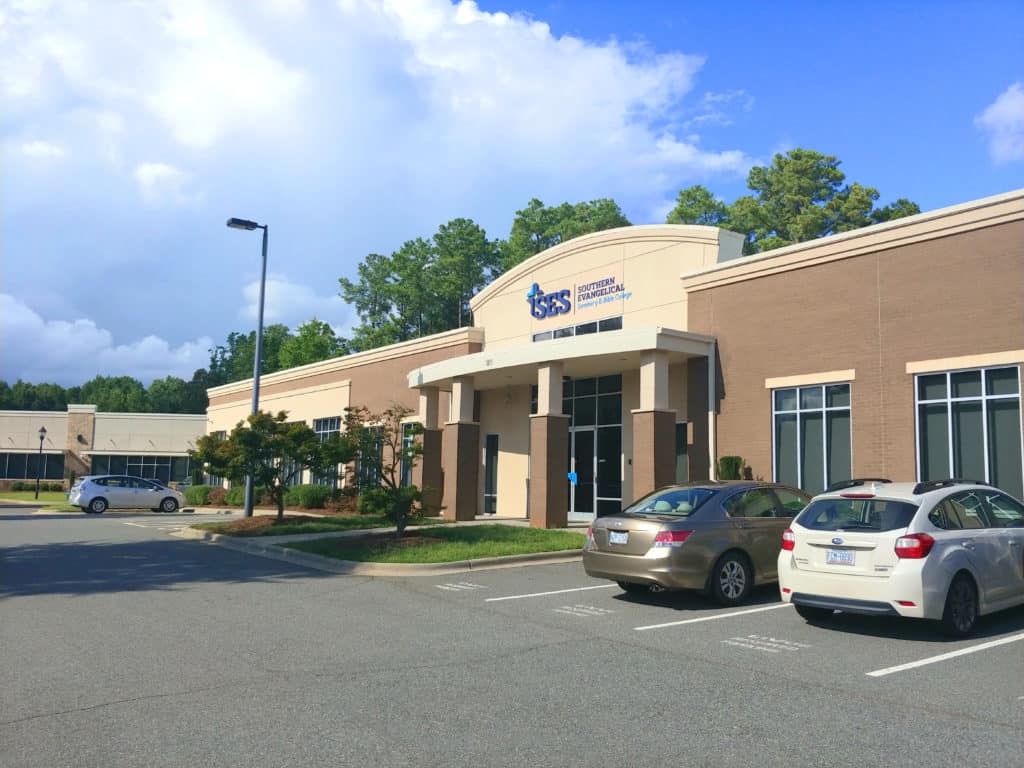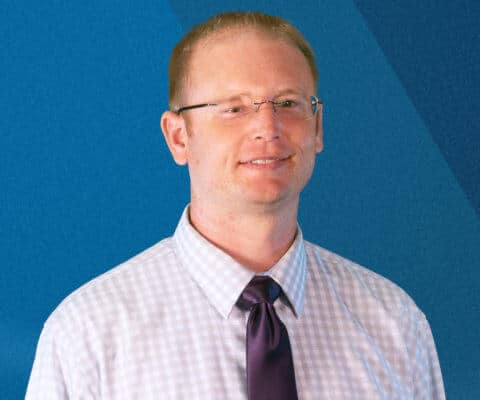It was 2004 and I was about to graduate from Lee University with a degree in history. I had just gotten married. While I planned on being a history professor I wanted to make sure we had money. So I thought, “What can I do with a history degree other than teach?” I found out that law schools like history majors. So, I started looking into that. After some time searching through a guide to law schools I realized I could not shake my desire for theology and apologetics. (While I studied history in college many of my classes were related to church history, and I minored in Bible—as all Lee students do.) I had been interested in apologetics for two reasons: I wanted to defend the faith and I wanted to know why I believed it as well. After doing a Google search for “MA in Apologetics” I discovered that there was a school in my hometown of Charlotte, NC that specialized in apologetics, and it had a professor I was familiar with—Norman Geisler. The school was Southern Evangelical Seminary. I decided to check it out. I had no idea what I was really doing, but SES changed my life forever. Let me explain why I thank God for SES, and why it is so different from other seminaries.
Classical Apologetics
I enrolled in the fall of ’04 and took a full load of grad classes. My major was Apologetics (how to defend the Christian faith). I knew very little about the subject. I had read a little of Josh McDowell’s Evidence That Demands A Verdict and had recently finished Frank Turek and Norman Geisler’s I Don’t Have Enough Faith to Be an Atheist. I knew just enough to get into trouble. I didn’t even know there were different methods and ways of doing apologetics. But this is one major area that makes SES unique. Many apologists and schools today practice either evidentialism or presuppositionalism. The former starts with the Bible and tries to give evidences for its reliability, such as archaeological studies or proof for the resurrection. The latter “presupposes” that Christianity is true and attempts to show that every other worldview is incoherent without the truth of Christianity. While each system has certain merits, those at SES maintain that classical apologetics is the strongest system. It first attempts to prove that God exists before moving to the evidences for the faith. As Dr. Geisler says, “Before we can show acts of God, we have to show there is a God who can act.” Proving theism first allows for the possibility of miracles (as C. S. Lewis stated). It also puts them in a theistic context. Overall, it is a stronger system.
Classical Philosophy
It didn’t take me long to realize that there was an enormous piece of the apologetics and theology puzzle I was completely unaware of: philosophy. The professors at SES explained that our philosophy has a tremendous amount of influence over our theology, apologetics, and even principles of biblical interpretation. (See my article here about the importance of philosophy.) Philosophy is so incredibly important, yet many Christians write it off as either a pagan practice or completely irrelevant. ‘Philosophy’ literally means “love of wisdom” and it really just is our view of reality. Philosophers want to know the nature of reality, knowledge, goodness, and beauty. While there is an endless list of philosophical sub-disciplines, they can be traced to these general areas. In taking classes on biblical interpretation and the history of philosophy, I could easily see how influential philosophy was. Who would have thought that philosophy shapes the way we view the very principles of biblical interpretation? Yet, it does. (See my article on this topic here.) Philosophy also shapes how we view history. Since Christianity is based on historical claims, whether or not we can know history is vitally important. (See my article on historical knowledge here.)
SES is very unique in their philosophy because they hold to a classical view of philosophy in the vein of Aristotle and Thomas Aquinas. Basically what that means is that SES teaches a very common sense view of philosophy. Philosophers at SES reject the fashionable analytic method of philosophy as—to rip off a book title—empty ideas. Rather, SES profs believe that it is more important to hold to a system of philosophy rather than just answer one problem after another with no real unifying thread between them.
But there is one area in particular that has suffered greatly at the hands of philosophy. That area is theology proper.
Classical Theology
This is the area that I thank God for the most concerning SES. When I started seminary I didn’t know the first thing about theology proper, that is, the study of God. But I would learn, as I have heard Norman Geisler say, “There are only two views of God: process theology and Thomism.” Process theology teaches just that, that God is in a process of change and becoming. Thomism teaches the classical view of God that he is simple, immutable, impassible, and eternal. These classical views have been rejected by many modern and contemporary philosophers and theologians. (See here.) Our view of God is the most important views we hold because they are about ultimate reality and they shape what we believe about everything else. While some schools have profs who teach classical theism, it is a staple of SES’s core beliefs.
The Bible
SES also has two unique views of the Bible: it is inerrant and can be known objectively. Many schools are unfortunately crumbling on the issue of inerrancy, that is, that the Bible is without error in the originals in every area that it touches, not just faith and salvation but also history, science, and geography. Also, while it is true that all interpreters have bias, that does not preclude our having an objective interpretation. (See this article on this topic.) However, many evangelical schools and books are denying, either implicitly or explicitly that we can know the meaning of the text objectively. SES is in the minority in holding that we can know it objectively, as it was intended to be known.
Conclusion
While many schools have professors who teach similar views as noted above, at least some of them, I do not know another school like SES that makes these issues explicitly paramount. The faculty and staff at SES believe that the above points are vitally important for carrying out their mission: to evangelize the world and defend the historic Christian faith. It has been a privilege and an honor to be not only a graduate of SES, but also a professor.
Dr. Brian Huffling
Dr. Brian Huffling’s research interests include: Philosophy of Religion, Philosophical Theology, Philosophical Hermeneutics, and general issues in Apologetics and Biblical studies. See his personal blog here.







